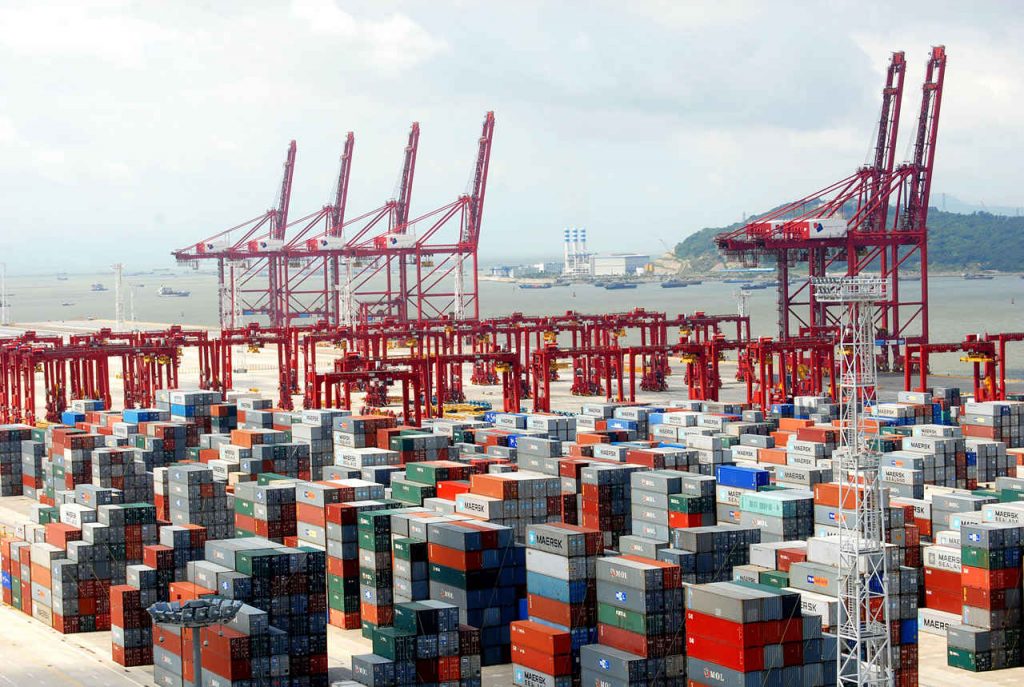In fact, some Indian exporters have in the past complained that such delaying practices are often employed by China itself to discourage imports of Indian goods, especially when political ties sour, said another official source.
Importers remained on the edge on Wednesday, amid fears and confusion over an alleged crackdown by authorities on consignments from China, even as senior Central government officials insisted no such order had been issued to target despatches from India’s biggest foreign supplier.
Amid calls by private individuals and associations to boycott Chinese goods in the wake of Beijing’s misadventure in the Galwan valley, speculation of a crackdown has intensified since Tuesday when certain consignments from China were allegedly “held up” at the Chennai port.
A top official of a state-run company that has container freight stations at Chennai, Mumbai and Kolkata ports, said: “The Container Freight Association of Chennai has issued guidelines for not handling goods originating from China. Containers are generally checked by Custom officers on a random basis. But when every container is being checked, then it is a time-consuming process. Due to this there will be heavy congestion at ports which handle large volumes of goods imported from China.”
However, when contacted, officials with the departments of commerce and revenue clarified no official order had been issued to any port by the Customs or by the central board of indirect taxes and customs (CBIC) to restrict any container from China. “If in certain cases, some containers are held up, then it may be based on specific intelligence inputs about suspected materials, etc, and on risk assessment, which is a routine exercise,” one of them said.
Separately, the Indian Railways announced on Wednesday that it will not float global tenders for PPE kits for purchases up to Rs 200 crore. The move is expected to hit China the most as India had imported 1.7 lakh PPE kits in April 2020 from the neighbouring country and found over half of the consignments failed to meet the quality and safety norms laid down by the defence research and development organisation (DRDO).
A section of importers feel Indian authorities are using contingent administrative action to scuttle Chinese imports, without any explicit official sanction. The step, they feel, is being resorted to because tariff walls could attract WTO strictures and non-tariff barriers are alleged to be draconian and arbitrary.
Some of the importers that FE spoke to said that they had not experienced unusual delay in Customs clearance of their Chinese imports. One of them said his consignments arrived twice a week, so any change in the Customs’ stance would have been apparent to him.
The head of a trade body said he was awaiting clarity from the Customs authority at the local level. “Hopefully, by Thursday, all confusions will be cleared,” he said.
However, another government official said there were unofficial ways of discouraging certain type of imports — either based on the product category or the country of origin or both. The Customs department could easily decide to manually check such consignments, which would extend the clearance time or it could pull out some of the officials from the duty to check the goods, thus, lengthening the clearance time.
In fact, some Indian exporters have in the past complained that such delaying practices are often employed by China itself to discourage imports of Indian goods, especially when political ties sour, said another official source.
Some industry executives have highlighted that India’s dependence on China for the supply of both raw materials and finished goods remains too high to be ended easily and abruptly. China makes up for about 45% of India’s electronics imports, one-third of its machinery and almost two-fifths of organic chemical purchases. As much as 90% of certain mobile phone components, 65-70% of active pharmaceutical ingredients (for making finished drugs) and over a fourth of its automotive parts and fertilisers are imported from China.
China, as such, remains the largest import destination for India and Beijing’s goods trade surplus with New Delhi was as much as $47 billion in the first 11 months of FY20. Between April 2019 and February this year, India’s imports from China stood at a massive $62.4 billion, while its exports to the neighbour touched only $15.5 billion. In FY19, India’s trade deficit with China was in excess of $53 billion.
However, New Delhi recently indicated its resolve to curb the inflows of substandard products and prevent unscrupulous elements from illegally taking advantage of the country’s free trade agreement (FTA) with any partner. While its move won’t be country-specific, China has been the biggest supplier of substandard products.
Also, Customs officials have long suspected that China may be diverting its supplies to India via Asean nations, abusing rules of origin. Given the latest border skirmish, the diversion may surge, they fear. So inflows from certain Asean members, especially Singapore and Vietnam, may see a closer scrutiny now.






